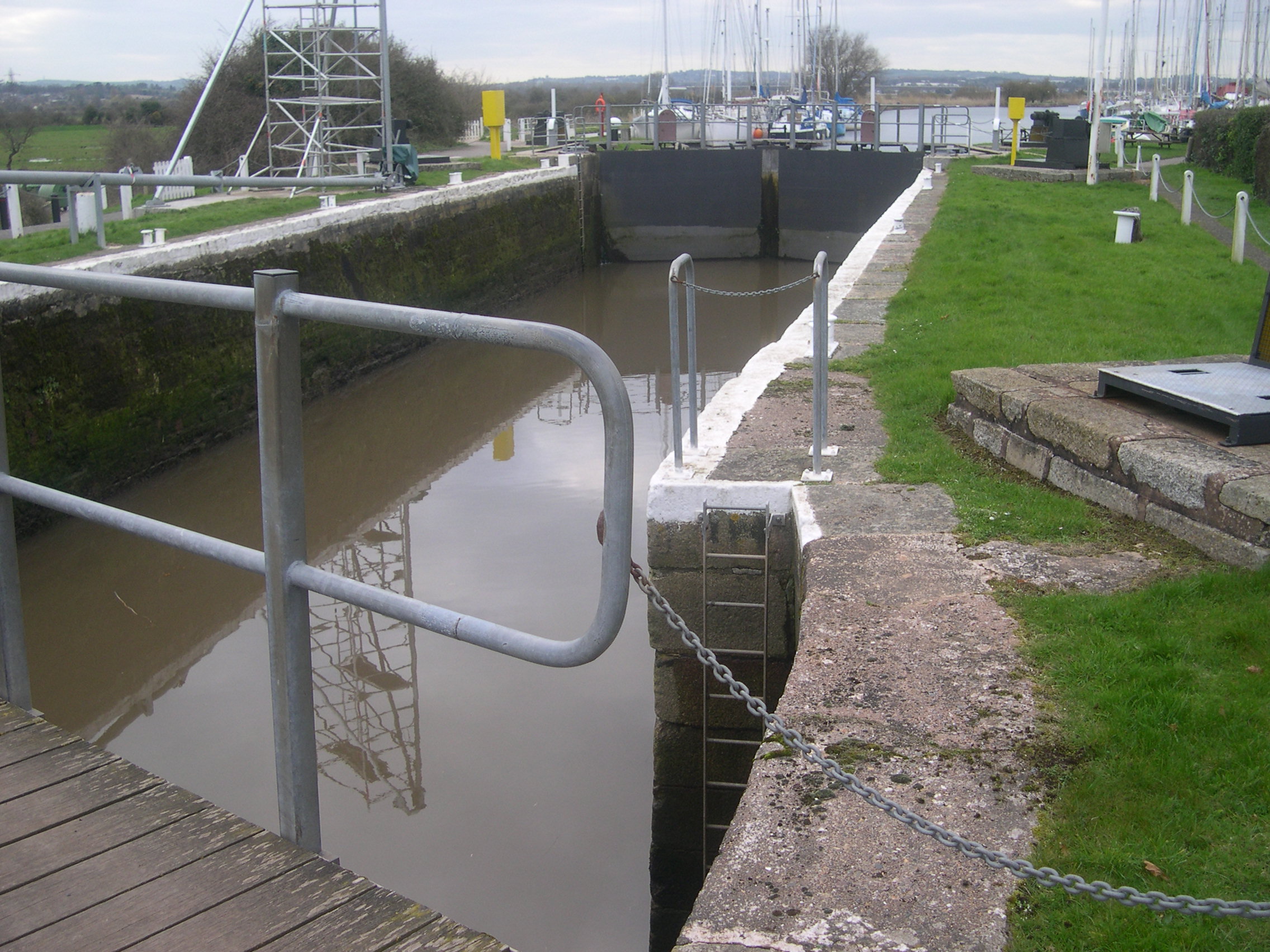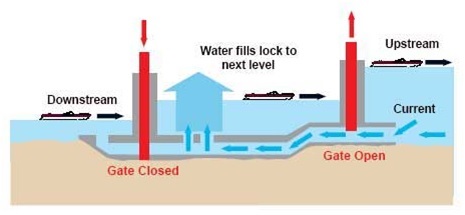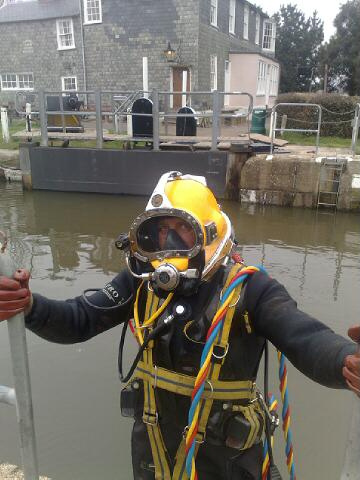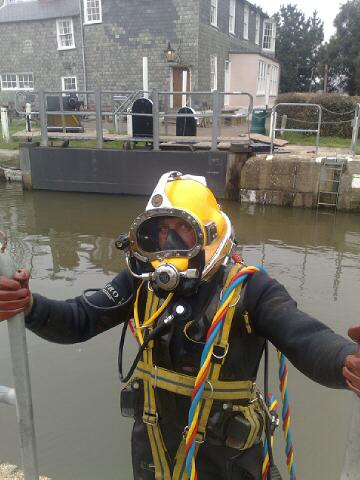A very common site in the British countryside is that of the Lock, but how do they work?

There are many different types of locks such as a staircase lock, broad lock, guillotine lock and double lock. These all vary in their design and sizes. We will be looking at the pound lock which is frequently seen along our river and canal networks.

As you can see in the diagram above, the lock helps to control the water level to enable a boat to traverse challenging landscapes. When the gates are closed, the chamber is watertight. A set of lock gear empty or fill the chamber as required. This is usually a simple valve (traditionally, a flat panel (paddle) lifted by manually winding a rack and pinion mechanism) which allows water to drain into or out of the chamber, thus raising or lowering the water levels.

As with any underwater structure, inspections and maintenance are always required and that is where Commercial and Specialised Diving come in! The differential pressures in a lock are extremely hazardous for divers so the correct equipment and precautions have to be implemented.
Commercial and Specialised Diving have the experience and the appropriate resources to be able to conduct maintenance and inspection on various types of lock.


